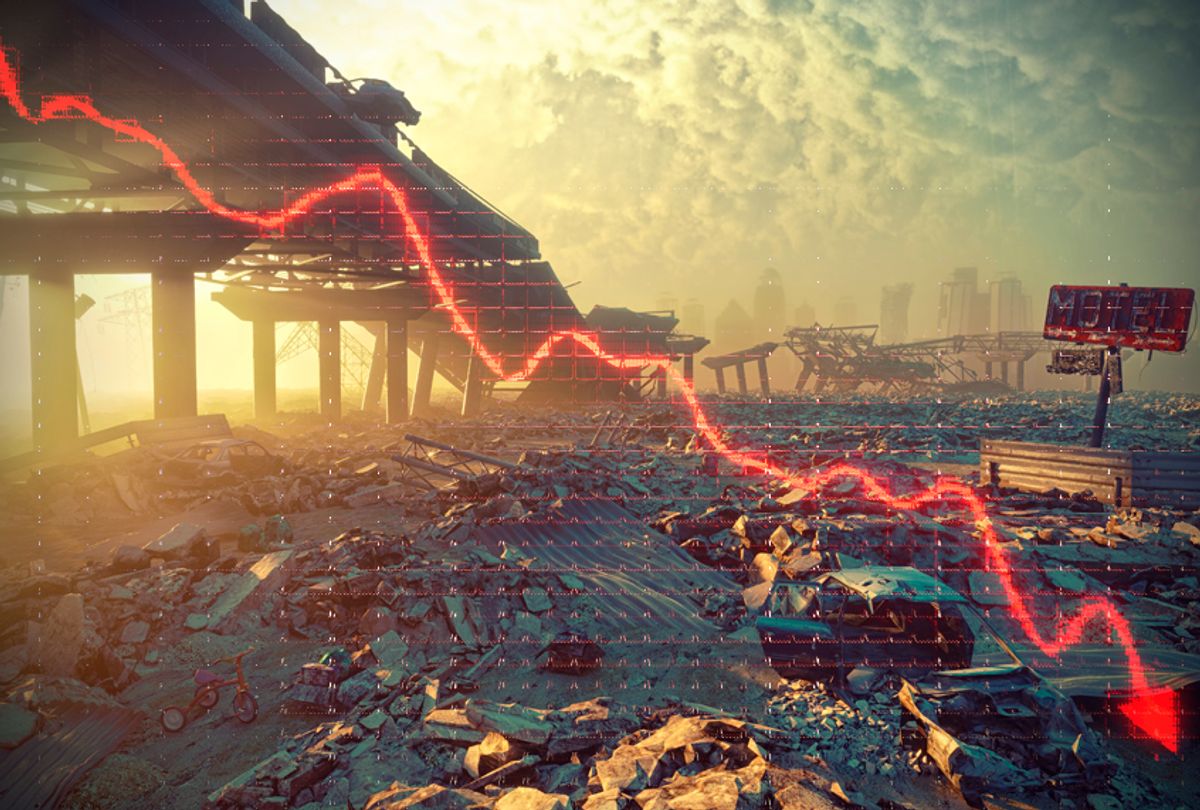TRIGGER FOR NEXT FINANCIAL IMPLOSION
“U.S. Banks are facing some $600 billion of unrealized losses, roughly 25% of total banking capital, near the highest levels in history.” – Automatic Earth
The U.S. banking system and likely, the global banking system, is essentially bankrupt. They just won’t admit it and central bankers won’t let them admit it. These “brilliant” Harvard Business School and Wharton trained financial geniuses thought it was a great idea to load up their institutions with mortgage and Treasury bonds when they were paying 0.5%. Now the ten year Treasury is 4.58%. Even a dolt like AOC or Pelosi should know bonds lose value when rates go up.
So here we are with banks almost $600 billion underwater in their bond holdings, waiting for our next Minsky Moment. Those living in a fantasy world of no consequences aren’t worried, because these banks don’t have to realize these losses unless they sell.
Credit default swaps of the biggest US banks are rising.. higher rates and young americans drowning in debt is no bueno i guess… pic.twitter.com/VtICXyzjah
— 🅰🅻🅴🆂🆂🅸🅾 (@AlessioUrban) October 2, 2023
Peter Schiff: Banks Have a Bigger Real Estate Problem Today Than They Did in 2007
Banks are more vulnerable to the housing market now than they were in 2007.
Most people in the mainstream will scoff at that statement. They’ll tell you that the situation is very different today. After all, we don’t have a big problem in the subprime mortgage market. We’re not seeing a big spike in defaults. That’s true. The problem is different this time. And it’s actually worse.
Most people will acknowledge that there are problems in the real estate market. Home sales continue to decline as mortgage rates climb. Pending home sales fell more than expected in August, with the National Association of Realtors’ Pending Home Sales Index falling to the lowest level since September 2022.
Meanwhile, home prices have fallen off the peak we saw in 2021, but they haven’t declined as much as you might expect because housing inventory remains tight.
So, what’s the problem?
As Peter Schiff explained in a recent podcast, the problem this time is the mortgages themselves.
The banks are in worse shape and more vulnerable to the housing market now than they were in 2007 when everything collapsed and we had the financial crisis.”
The problem in 2007 and 2008 was defaults. As interest rates rose, people couldn’t afford to pay their mortgages. That forced banks to foreclose. With the real estate bubble deflating, banks couldn’t recoup their loans by selling the houses.
The problem was the banks had loaned out a lot of money with zero down or negative AM, and then housing prices went down, and then people started defaulting. Because of the defaults, the banks lost money. But the vast majority of mortgages didn’t default. It was just a large enough percentage that it caused insolvency at these banks.”
Because we have a fractional reserve system, banks don’t have nearly enough reserves to cover even a small number of their loans.
Today we have a much different scenario. Peter says it’s worse.
It’s not about default now. In fact, defaults would actually help. The banks would actually be better off if people defaulted on the mortgages. The problem is the mortgage itself. The banks are losing money on the mortgage.”
#recession … #GFC2 US #Housing Bubble 2.0 edition#RealEstate #Mortgages #RMBS 📉 🥶 https://t.co/drXUt9TPhY pic.twitter.com/GtvpAIGe2C
— Invariant Perspective (@InvariantPersp1) September 29, 2023
‘Something Will Break’ With Yields Grinding Higher
Investors are growing increasingly alarmed as long-term borrowing costs skyrocket at an alarming pace, unseen since 2007. JPMorgan’s David Lebovitz forewarns of a looming financial crash if this surge continues. Equities appear blindly optimistic, ignoring warning signs from the bond market. Political instability brews with Republican Matt Gaetz taking on House Speaker Kevin McCarthy. The yen and euro’s declining stance against the dollar further adds to the growing list of economic concerns.

